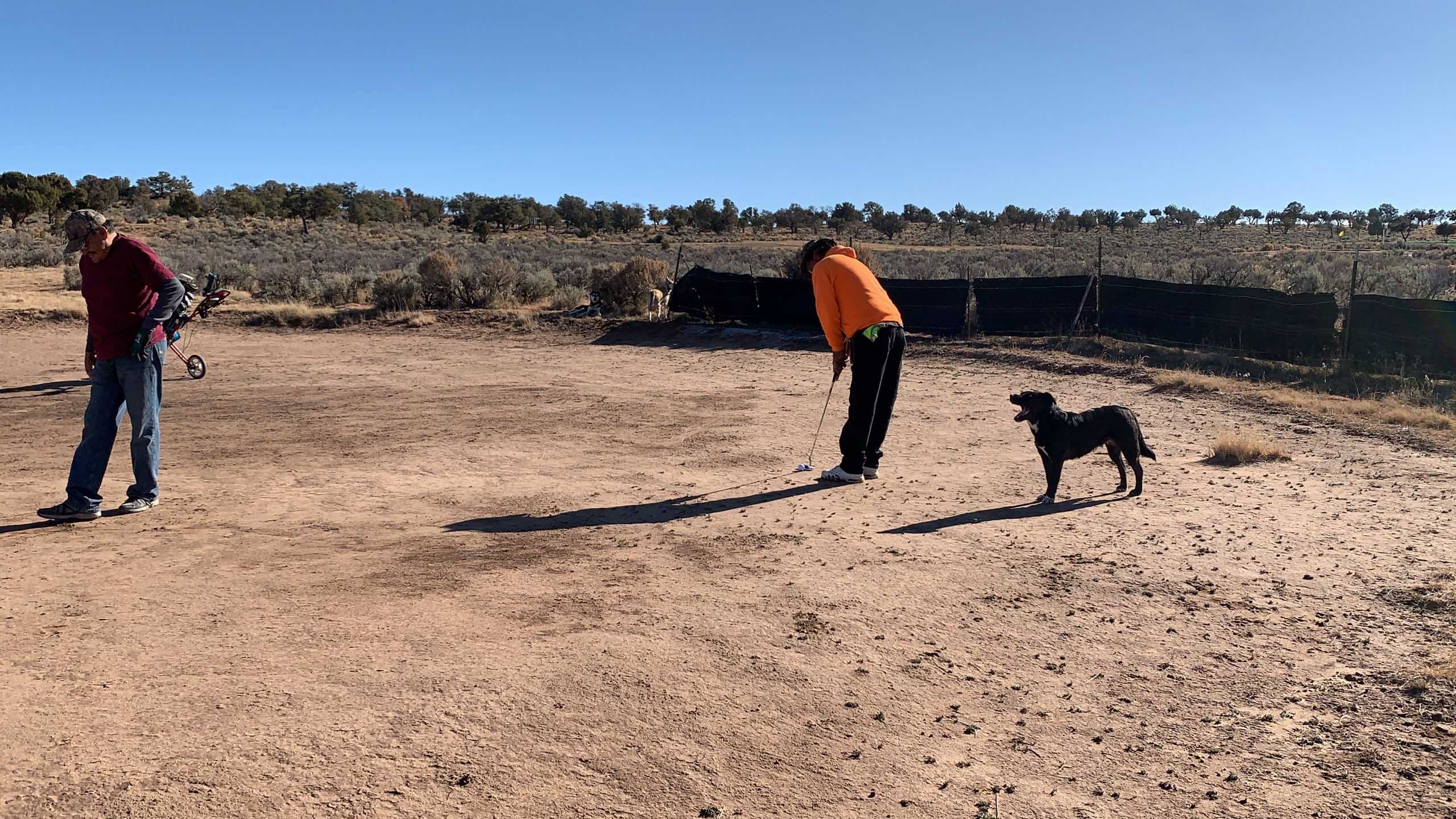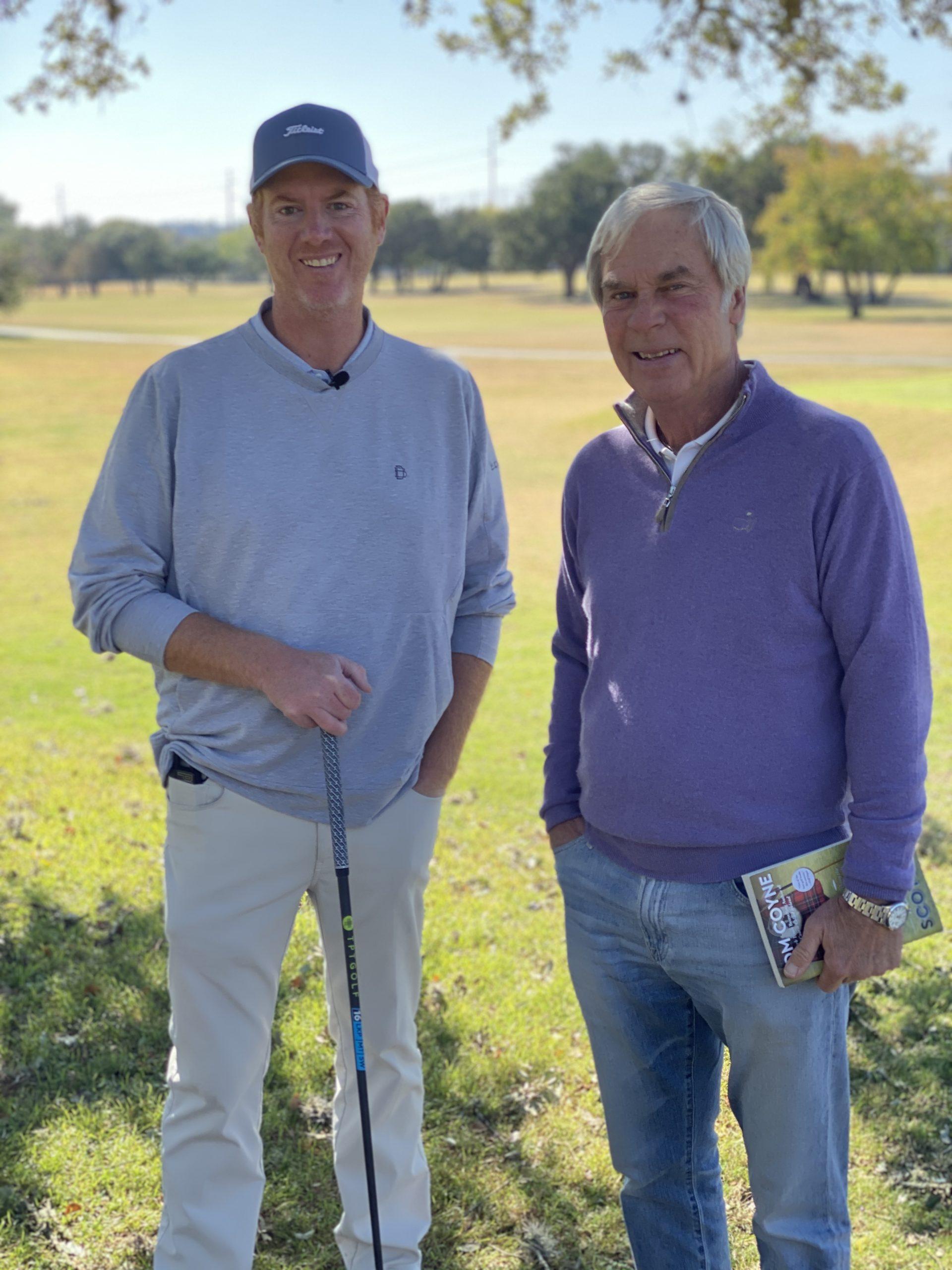Thomas Coyne, M.F.A., associate professor of English, spent the better part of 2019 on the road, traveling to and playing golf at 50 U.S. Open venues in all 50 states. He played other courses throughout the process as well, which brought the course total up to 250.
Coyne was on a quest to find the great American golf course and is currently working on his fifth book detailing his experiences.
He’s not new to projects like this. He’s already written four books specifically on travel and golf. Two of those books, “A Course Called Ireland: A Long Walk in Search of a Country, a Pint, and the Next Tee” and “A Course Called Scotland: Searching the Home of Golf for the Secret to Its Game,” have a similar concept to that of his latest work in progress: travel, golf, meeting new people and building connections.
However, by traveling through the U.S., Coyne had a unique purpose. In order to find the great American golf course, he had to discover what “American” means. Coyne avoided looking at any news during his journey. He said he wanted to see America firsthand, finding out for himself if there is such a divide in identity and politics, an agenda that the media seems to proliferate.
“What I found left me feeling really positive about America because I wasn’t meeting Republicans or Democrats, I wasn’t going to red and blue states, [but] I was meeting people,” Coyne said. “I just found all these similarities in terms of we all want the same thing. We all want a little bit of happiness, and we all want a good life for our next generation.”
Coyne grew up playing golf and caddying at Rolling Green Golf Club in Springfield, Pennsylvania. He first started playing the sport at 8 years old. But caddying is what had the largest impact on Coyne’s perspective in terms of golf. Coyne said he would wait for work on course property every morning in the summer, listening to stories from the older caddies for hours.
“Without that experience, I wouldn’t be doing what I’m doing right now,” Coyne said.
Coyne applied the concept of storytelling and unique perspectives to the overarching themes that make up what the great American golf course actually is.
“A great golf course to me, I certainly learned from doing the trip, has everything to do with the people you play with, and much less to do with the course itself,” Coyne said. “That may seem obvious, but I think in golf we really get hung up on a course’s rating or its design. If I really reflect back on my favorite experiences of the last year, I wouldn’t remember the architecture as much as the people. The company really makes everything.”
That company included a man named Penn Wells. Wells met Coyne in 2015 after reading “A Course Called Ireland,” which he laughed and cried to. He sent a letter to Coyne in response to the book and the two connected soon after. Wells played golf with Coyne in five states during his tour of America.

Wells agreed with Coyne that people are what make up a powerful golf experience, especially in the context of Coyne’s project.
“It’s the love of the game that brings everyone together,” Wells said. “Through meeting someone on the golf course, sometimes it’s spoken and sometimes it’s unspoken, you get a good understanding of what this person is all about in life.”
Coyne met and talked to people that he never would have had it not been for golf, because they were coincidentally paired together.
“I wouldn’t expect in a foursome to have a business owner and then a surfer hippie,” Coyne said. “Elsewhere in life, they’re not going to get to know each other. On the golf course I was playing on, they did get to know each other and enjoyed it and were better for it.”
Brendan Young ’97, former member of the St. Joe’s golf team, played in five states with Coyne, and experienced these different perspectives firsthand at Cypress Point Country Club in Virginia Beach, Virginia.
“I played with Tom [Coyne] and the president of Cypress Point, who’s a retired CEO of Bank of America,” Young said. “I would never be in that group. In that same group, there was a firefighter from New York, who played every day. We would never cross paths on a normal day.”
One of Coyne’s most powerful experiences came in Arizona, playing on a course in the Navajo Nation. The course was called “Wagon Trails of Lonesome Pine.” The terrain was entirely smooth crusted dirt with no grass and free of charge for anyone.

Coyne said the people were entirely genuine and completely at peace, bothered by nothing, which was surprising to him.
“We have these visions of reservation life being abject poverty, and I was wrong about that,” Coyne said. “I was wrong to think life there isn’t or couldn’t be a wonderful happy life. That taught me a lot about my expectations about other people, how little I knew and how much I had to learn.”
By the end of the trip, Coyne said he had a new perception of America, being far different than one might think, especially if it was to be viewed only through a television screen.
“I found that people are really, really good,” Coyne said. “I’ve played with people on the right, people on the left, military people, social activists, etc. We’re all not that different at the end of the day. It seems like an obvious thing and a cliche thing. We’re all the same deep down.”















































